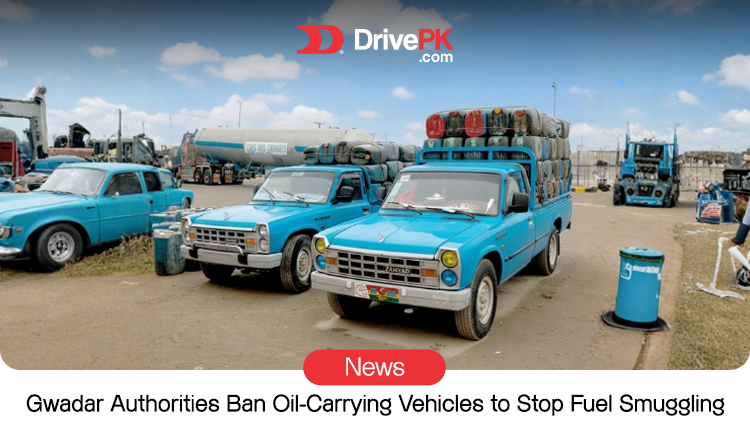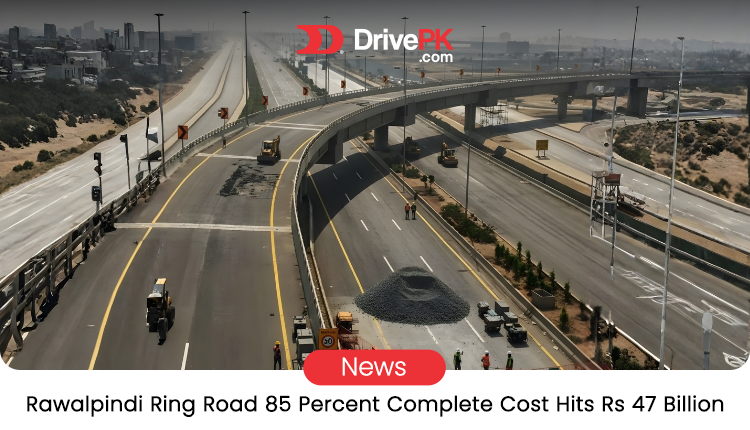Gwadar Just Banned Oil Tankers, The Fuel Smuggling Crackdown Is Real
Gwadar has imposed a full ban on oil tankers and Zamyad vehicles after years of Iranian fuel smuggling draining Rs227 billion annually. Police, FC, and Coast Guards now monitor every route from Jiwani to Gwadar, seizing illegal loads and tightening border control.

Table of Contents
- Why They Did It
- Who Is Enforcing the Ban
- Life on the Smuggling Route
- The Bigger Problem
- What Happens Next
- What People in Balochistan Are Already Seeing
- Conclusion
Authorities in Gwadar dropped the hammer this week. No oil-carrying vehicle, especially the Zamyad pickups everyone knows, can move fuel between Jiwani, Paanwaan, and Gwadar city anymore. The order is effective right now.
Why They Did It
Iranian petrol and diesel have been pouring across the border for years. Speedboats unload at night along the Dasht River. Modified trucks then haul the fuel inland. From Balochistan, it reaches Punjab and Sindh filling stations sell it cheaply.
The cost to Pakistan? Over Rs227 billion is lost every year in taxes and duties. Legal pumps sit empty while smuggled fuel sells at Rs 40–50 less per litre.
Who Is Enforcing the Ban
Police, Pakistan Coast Guards, and Frontier Corps are on full alert. Checkpoints are up on every road coming out of Gwadar and Jiwani. Any tanker or Zamyad caught carrying Iranian fuel gets seized on the spot.
Life on the Smuggling Route
Thousands of people along the coast and inland make a living from this trade, including boat crews, drivers, and pump owners. When the route shuts even for a week, prices jump and fights break out. Past crackdowns have led to petrol stations running dry across half of Balochistan.
The Bigger Problem
Smuggled fuel doesn’t just dodge tax. It funds organised gangs. Legal oil companies lose business. Refineries run below capacity. The government says the country can’t keep bleeding Rs227 billion a year.
What Happens Next
Authorities plan to tag every legal fuel truck with digital trackers. Pumps caught selling smuggled petrol will lose their licences. More Coast Guard boats will patrol the shoreline at night.
What People in Balochistan Are Already Seeing
- Long queues at legal petrol pumps in Gwadar and Turbat
- Zamyad trucks are parked and empty on the roadside
- The Iranian diesel price on the black market is already up by Rs 30 per litre
- Some stations are completely dry until the next legal tanker arrives
Conclusion
The ban is tight, and it hurts both sides, the smugglers and the buyers who liked cheap fuel. But the government says losing Rs227 billion a year is no longer an option. Roads are blocked, boats are watched, and for the first time in years, the smuggling pipeline has a hard stop.
For more updates, visit DrivePK.com
Tags
Share this article
About the Author
Najeeb Khan
Automotive enthusiast and writer
Comments (0)
Login Required
You need to be logged in to comment on this article.
No comments yet. Be the first to share your thoughts!
Related Articles

Karachi Red Line BRT Project Update 2026: Sharjeel Inam Memon Shares Timeline and Challenges
Sharjeel Inam Memon updated on the Red Line BRT in Karachi. The project could need another 18 months to complete after facing big challenges. Side roads will be ready before Eid. Key work on University Road finishes soon. Efforts continue to clear bus import hurdles

Islamabad Electric Tram Service 2026: CDA Starts Feasibility Study for New Routes
Capital Development Authority has begun work on an electric tram service in Islamabad. The move follows direct orders from the federal interior minister. The feasibility study must finish in three months. Routes planned from Islamabad Airport and Rawat to Lake View Park. The system will be fully cashless.

Thalian Interchange Work Starts Next Week on Rawalpindi Ring Road, Cost Now Rs 47 Billion
Work on the Rs 5 billion Thalian Interchange of the Rawalpindi Ring Road starts next week. The divisional administration will acquire 358 extra kanals near the motorway, raising the total project cost to Rs 47 billion. More than 85% of the road is already finished. Bookings for toll and e-tags are expected to follow the Lahore model at Rs 80 per vehicle.